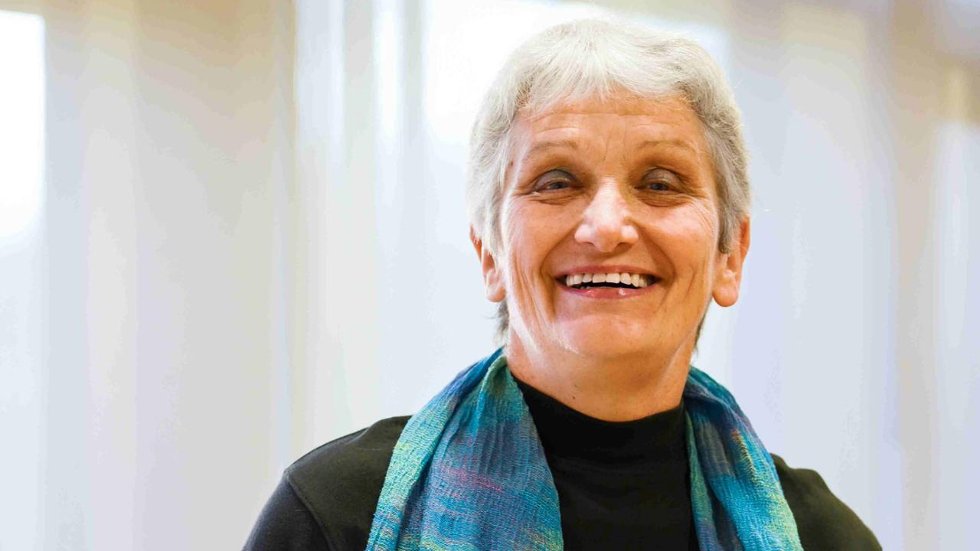Between heaven and hell – fifteen years in Iraq

From the cradle of humanity to the shattered ruins of world politics: go looking in Germany or Europe for information about Iraq and youʹll quickly find yourself entangled in tales of crisis and war that are rife with superlatives. But sensationalism and lurid headlines are not the way of journalist Birgit Svensson, which is why her recently published account of her 15 years spent in Iraq is so significant.
The title "Moerderische Freiheit: 15 Jahre zwischen Himmel und Hoelle im Irak" admittedly gives pause for thought – it is a reference to "Operation Iraqi Freedom", the name chosen by the USA for the war it launched in March 2003 in contravention of international law. And yet it is gratifying to note the sober journalistic tone and great empathy with which Svensson tracks the many bewildering developments in Iraq in recent years and fills them with life.
Because that is just what she tries to do: to shed some light on the actual daily lives of Iraqi women and men. Svensson is not a war correspondent – even though everything in the country seems to revolve around wars and crises. When the flocks of journalists who, like her, came to the country in March 2003 departed again after the fall of Baghdad and the toppling of Saddam Hussein, she remained behind.
For 15 long years, despite the ever-present threat of kidnapping, terrorism and war. Writing a book about this period was not her own idea but that of the publisher – "ME of all people," writes Svensson in the epilogue. One would like to thank the publisher.

Lynchpin to the Middle East
"Iraq is the lynchpin when examining developments in the Middle East," writes Birgit Svensson right at the start of her account. In the chapters that follow she provides an overview of events since 2003. She usually proceeds chronologically – readers only occasionally have to search for a year for better orientation.
Svensson unravels all the main problems facing Iraq today. There is sectarianism, for one thing, which can be traced back to the dictatorship of Saddam Hussein, a member of the Sunni minority who ruled over a Shia majority population. Which Islamic denomination people belonged to, however, was of no great importance for many decades.
But in 2003 the Americans introduced a system of proportional representation that was intended to ensure denominational parity. It sounded good on paper, but it encouraged religious faultlines to develop along which problems such as political representation and corruption ignited. "I suddenly realised I was a Shia," Svensson quotes a government councillor as saying at the time.
The disbanding of the Iraqi army by the U.S. civil services administrator Paul Bremer in September 2003 turned out to be a dire mistake. In one fell swoop, 450,000 people lost their jobs. Some of them took their weapons home with them – and immediately afterwards formed an organised resistance against the occupiers. "I can't believe you can ever make as many mistakes as the Americans made in Iraq," writes Svensson.
The Westʹs responsibility
Then came Abu Ghraib, the torture scandal in the prison near Baghdad, already infamous in Saddam's day. The images of humiliated prisoners went around the world, but they especially raced through all layers of society in Iraq.
Svensson: "These were not simply accidents, which is how the cases were initially portrayed, but involved systematically torturing people to death. It was murder." Terrorist attacks, murders and kidnappings all over the country intensified drastically as a result.
The West also bears a share of the responsibility for many of Iraq's problems. Svensson cites, for example, the Oil for Food programme, which led to far-reaching accusations of corruption and not least against the German company Siemens. And then there's the U.S. prison Camp Bucca, which Svensson calls the "cradle of terrorism" because it became the incubator for the Sunni IS and the Shia Hashd al-Shaabi.As far as the other problems are concerned, Saddam Hussein's dictatorship and the incompetence and nepotism of Iraqi politicians played a far greater role. At the centre is also, naturally, oil. Owing to its oil and gas reserves, Iraq should actually be one of the richest countries in the world. But oil was also one of the main reasons for the U.S. Army's invasion in 2003 and now it is fuelling the ubiquitous corruption in the country.
Chronicling the re-birth of a society
Svensson is knowledgeable in her analysis of these developments. But it is her own personal experiences that make the book worth reading. "The further away you are from the scene of events, the darker the reality seems. That we go out in the evening in Baghdad; that cultural events are booming; that even the state of emergency that lasted for years is being lifted and concrete blocks protecting city streets are being dismantled is something almost nobody can believe."
The descriptions of her favourite foods – the famous fish dish masgouf and gemar, a thick cream made with maize flour – are also a welcome change of pace after so many years of horrific reports from Iraq. They give us a look at people's everyday lives, something that is often lacking.
And though prospects looked grim in the days of IS terrorism: Birgit Svensson has high hopes for Iraq. She bases her optimism on the one hand on the country's youth – more and more young people are overcoming sectarian divisions, as evidenced, for example, by the "Sushi marriages" between Sunnis and Shias.
On the other, she is also looking to the women: to Thikra Alwash, for example, who as Baghdad's mayor is the first female leader of an Arab capital. Or to poets like Amal Ibrahim, with whom Svensson published the poetry collection "Mit den Augen von Inana" (Through Inana's Eyes).
Here it finally shines through, the image of heaven summoned by the book's subtitle. "The Garden of Eden is not drying up," says Raad, a farmer from the marshes of southern Iraq. "Not yet!"
Christopher Resch
Qantara.de 2018
Translated from the German by Jennifer Taylor
